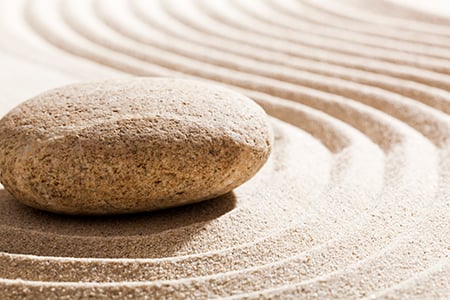Let Go And Sleep: Rest As A Spiritual Practice
Nightly sleep is the daily rehearsal where we learn that letting go is not failure — it’s faith.
When was the last time you woke up truly rested — not just not tired, but renewed and at peace? For most of us, that’s rare. Sleep is the first thing we sacrifice and the last thing we respect. We treat it like wasted time, the thing we can borrow from to finish one more email, squeeze in one more deadline, or binge one more episode.
But as a psychologist specializing in behavioral sleep medicine — and as a rabbi — I’ve come to see sleeplessness not only as a medical issue, but as a spiritual crisis.
The Spiritual Cost Of Sleeplessness
Science is clear: chronic sleep deprivation worsens anxiety and depression, raises the risk of diabetes and heart disease, impairs memory and focus, and weakens the immune system. Twenty percent of car crashes involve drowsy driving. Sleeplessness is dangerous — and yet, our culture glorifies exhaustion.
We applaud the entrepreneur who brags about working 100-hour weeks, the parent who wears 4 a.m. emails like a badge of honor, the student who pulls all-nighters. In this mindset, rest looks like weakness. But spiritually and biologically, the opposite is true: rest is strength.
Ancient Wisdom, Modern Science
Across traditions, sleep has always carried meaning. In Jewish thought, the Talmud calls sleep “one-sixtieth of death” — a nightly practice in letting go. So does Islam. Bedtime prayers, like the Shema, function as a ritual wind-down: “I let go and I entrust my spirit.” Neuroscientists now confirm that such practices quiet the nervous system and shift attention away from worry loops — an ancient form of cognitive-behavioral therapy.
Other traditions echo this wisdom. Ayurveda prescribes evening oil massages and herbs like ashwagandha for calming the mind. Traditional Chinese Medicine links insomnia to a disturbance of shen, the spirit housed in the heart, treated with teas and acupuncture. Early Christian monastics sometimes used sleepless vigils to test their devotion.
And neuroscience affirms what these rituals intuited. Sleep consolidates memory, regulates emotions, and literally flushes toxins from the brain through the glymphatic system. Modern behavioral sleep medicine emphasizes bedtime routines, relaxation, and stimulus control — principles that have been guiding human communities for millennia.
Sleep As Spiritual Discipline
Sleep isn’t passive — it’s a spiritual practice. Each night, when you close your eyes, you surrender control. You embody humility. You say, without words: the world doesn’t rest on my shoulders.
Jewish Sabbath (Shabbat) is a weekly version of this truth: a pause in productivity, a training ground for trust. Nightly sleep is the daily rehearsal. In both, we learn that letting go is not failure — it’s faith.
A Five-Step Sacred Sleep Ritual
Here’s a practice I teach, rooted in Jewish wisdom but accessible to everyone. It takes ten minutes and transforms the way you enter rest:
- Dim the World. Turn off screens, dim lights, set your phone aside. This signals your body it’s time to power down.
- Practice Gratitude. Name three good things from your day. Gratitude shifts the brain from survival mode to rest mode.
- Emotional Clearing. Write one sentence: “Tonight, I release…” Whatever burden you name, you set down for the night.
- Breathwork. Inhale for 4, hold for 6, exhale for 7. Repeat three times. This rhythm activates the body’s relaxation system.
- Sacred Surrender. Whisper a short prayer or simply say: “I am not alone. I place my trust in the universe.”
Think of this as spiritual neuroscience: practical steps that calm the nervous system while also restoring the soul.
Rest Restores More Than the Body
The gift of sleep is not just waking up refreshed; it’s waking up more human. Rested people are more patient with their children, more compassionate with their partners, more creative in their work, and more connected in their communities.
Sleep isn’t downtime. It’s sacred time. Each night, we practice release. Each morning, we practice renewal.
Let go and go to sleep. Not as indulgence. Not as laziness. But as a spiritual act. Sleep is the body’s prayer. Your breath becomes liturgy, your dreams midrash, your stillness an offering.
You don’t have to be religious to find meaning in this. You just have to be human — and desire better sleep. And when you honor sleep as sacred, you don’t just heal your body; you restore your soul.
Rabbi Bruce D. Forman, PhD, is a Florida psychologist specializing in behavioral sleep medicine and the author of For God’s Sake Go to Sleep: Insights About Sleep from Jewish Tradition & Modern Science.
Find holistic Spiritual Practices in the Spirit of Change online Alternative Health Directory.
RELATED ARTICLES:
Military Method For Falling Asleep In Two Minutes
6 Exercises to Help You Fall Asleep With Ease











